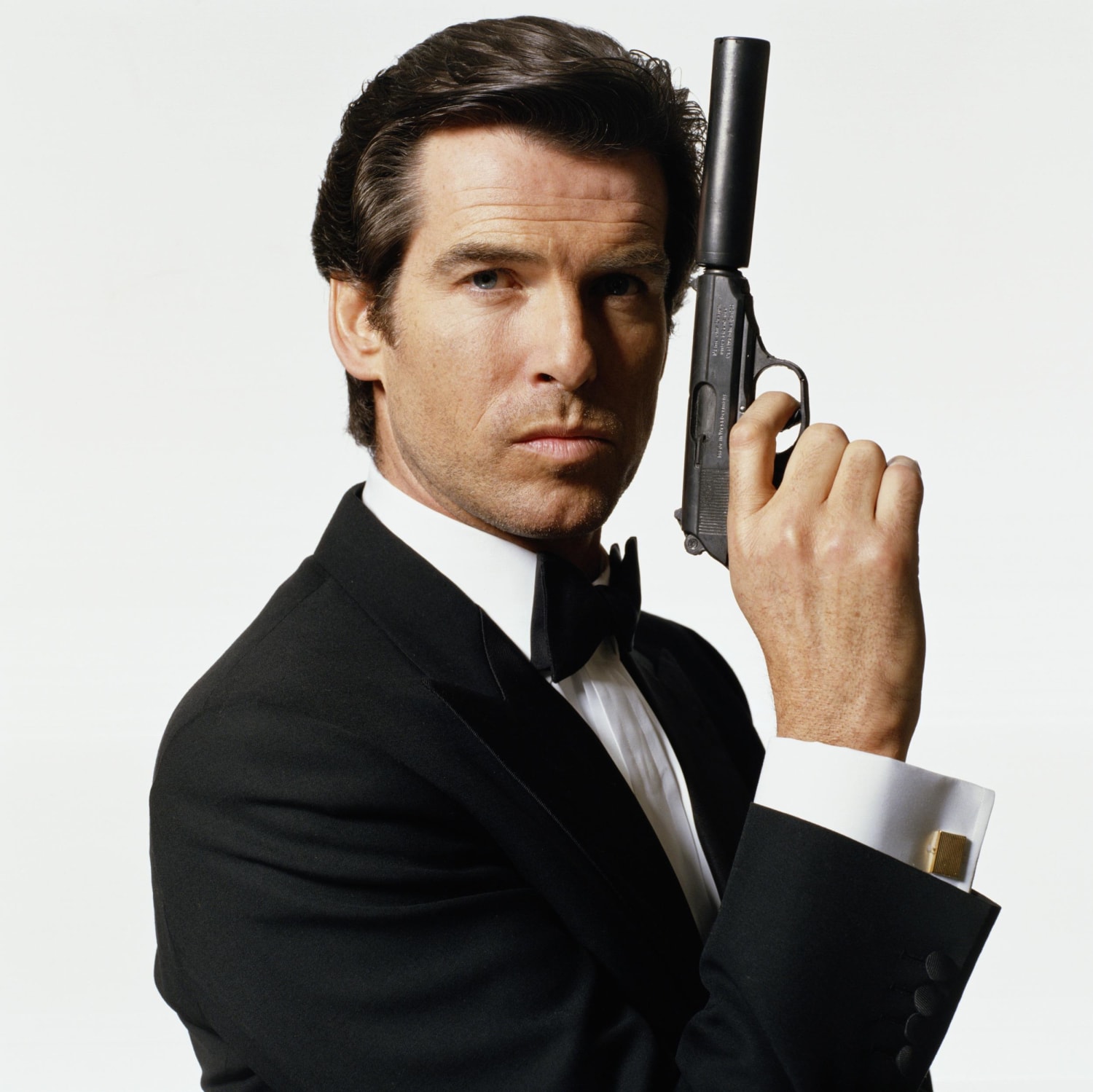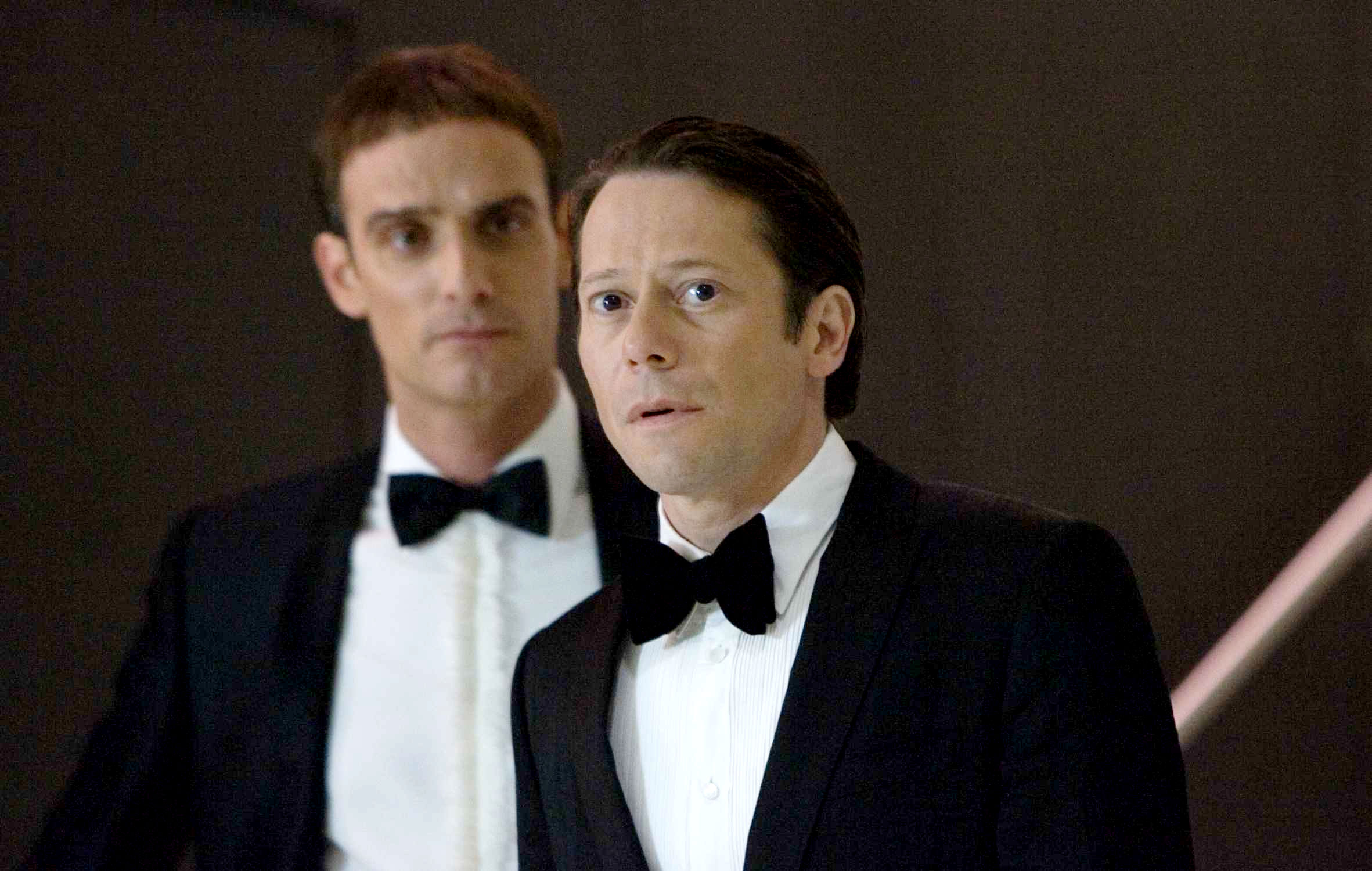 There is a peculiar movement of historical revisionism
afoot. People are unable to accurately remember things that
happened within the last two decades, and instead spin them to whatever ends they feel
best suits their chosen perspective. I’m not talking politics here, I am
talking something far more important. Would James Bond still be a viable
cinematic property were it not for Pierce Brosnan?
There is a peculiar movement of historical revisionism
afoot. People are unable to accurately remember things that
happened within the last two decades, and instead spin them to whatever ends they feel
best suits their chosen perspective. I’m not talking politics here, I am
talking something far more important. Would James Bond still be a viable
cinematic property were it not for Pierce Brosnan?
There is a growing legion of folks who seem to think that
Daniel Craig saved the franchise from certain demise. These people cite
the primary cause of that impending demise to be Brosnan, with a fair degree of
shade thrown at the collective team behind 2002’s Die Another Day. Having just
revisited the four films this week, I won’t take much issue with the latter.
However, the notion behind the former is not only laughable, it is just wrong.
There are five good reasons why Craig didn’t save the franchise and Brosnan
wasn’t what was sinking it.
“You’re a sexist, misogynist dinosaur.”
And that was what audiences liked about Bond. But
twenty years ago, when GoldenEye was filming, Bond was viewed as a
“relic of the Cold War” by the scriptwriters themselves. The Berlin Wall had
come down, the USSR had dissolved and politics had changed irrevocably during
Bond’s six-year absence from the screen during much legal wrangling with MGM
and following Dalton’s departure from the franchise (which sadly gave him very
little to work with). They had tried a harder-edged Bond, but ironically America wasn't ready for that just yet. The future of the franchise was in real doubt. The fact
that the superb GoldenEye was a success was in large part due to
Brosnan. He was the producers’ first choice in 1986 until NBC head-scratchingly
refused to allow Brosnan to take the part due to his Remington Steele
obligations. That they were able to revisit that decision les than ten years later
and get Brosnan while he was still peaking was fortuitous. But the growing
contingent who trashes him ignores a simple reality: if not Brosnan, who would
have saved the franchise?
 |
| I was too an important character before Craig arrived. |
The rumors hold that Mel Gibson among others turned down the
opportunity to revitalize the franchise. Think how that decision might have
looked in the early oughts. But no top-tier actor was going to join a series
with declining revenues and diminishing cache. Additionally, long-time lead
producer Cubby Broccoli was of failing health and when Barbara took the lead
she made it clear that the established film-making team headed by John Glen was
not keeping pace with the times. Judi Dench was added as M to mirror the real life shattering of the glass cieling at MI-6 (and despite some assertions, was an integral part of The World Is Not Enough). It was going to be a period of change for the
franchise, and an unknown as Bond wouldn’t do. They needed something familiar
for the audiences to latch on to, and Brosnan was the one thing that made
sense. Well, of course, you can always count on old Q…
Every Brosnan Film was a Blockbuster
The Dalton films both disappointed financially, with License
To Kill being the lowest performing Bond film in the U.S. at $34m. But each
Brosnan film made more than its predecessor, with GoldenEye shattering
the $100m mark in the U.S. at a time when that number still meant something.
The steady film-by-film appreciation of the box office take was not because
each movie got better (in fact, many would say quite the opposite), but because
the team behind the films was able to keep the franchise fresh and current,
even if that meant sacrificing a bit of quality along the way. They reached out
to new audiences by adding Michelle Yeoh to attract Chinese filmgoers and Halle
Berry to broaden to female and non-white audience members. Regardless of what
you think of each choice, the dollars rolled in. And now, can you even remember the day where the release of a new Bond film wasn't a major event?
Casino Royale was a nearly literal Fleming adaptation
If you want your man to succeed, give him good material. And
in 2007, they gave Daniel Craig the best material possible: the only original
Fleming novel to not have been adapted yet. Unlike instances in the past where
novel titles were used as loose basis for the films (The Spy Who Loved Me and
You Only Live Twice being the most blatant), Casino Royale used
almost the entire premise of the novel. There is a lot of exposition in the
film that goes beyond that, but the core is there and more importantly, so is
the emotional content. There’s a reason the best Bonds are the same on nearly
every list: they were the closest adaptations of Fleming’s original works. Brosnan,
on the other hand, was the only Bond to work with only scripts that were
entirely original, leading to varying levels of quality and multiple levels of
re-writes.
Oscar-caliber villains make a difference – and are signing on
 |
| Born to play a baddie. |
In 1995, there was much hubbub about the realistic
possibility that Anthony Hopkins would join a Bond film as a villain. Think
about that for a moment: the mere possibility that the man who played Hannibal
Lecter just four years earlier was in talks to be a Bond villain was huge. Sure,
Christopher Walken was in that echelon, but A View to a Kill sure wasn’t.
GoldenEye showed the possibility existed though for a quality actor to
chew up some scenery. Famke Janssen was superb as Xenia Onatopp, the first
henchwoman that Bond couldn’t conquer (and quite honestly we would have rather
she conquered him), and Sean Bean was introduced to many Americans in fine
form. But after that came a string of character actors (quick, can you name all
four?) who never quite reached that level. Daniel Craig got a triumverate of
accomplished thespians to square off against: Mads Mikkelsen, Mathieu Amalric,
and Javier Bardem. Now he gets Christoph Waltz?!? A two-time Oscar winner who
pretty much has shown that he was born to play a Bond villain? That is hardly
fair.
Then there’s that whole Quantum of Solace thing
 |
| Unremarkable? Because I wasn't somehow disfigured? |
Say all you want about Die Another Day, it is that
bad. Yet it is only as bad as Moonraker and Diamonds Are Forever.
However, QoS is on a whole different level of horrible. I have been an
ardent Bond fan since middle school and can watch any of the films over and
over again and still take some joy out of them. But it took a strong amount of
effort and a whole lot of alcohol to get me to sit through QoS even a
second time. Unpleasant in tone and joyless in execution, the film has an
unremarkable villain, a paint-by-numbers Bond girl, lackluster plot and
dialogue, features an out-of-control and out-of-character Bond, and uses
jump-cut action sequences that are darn near incoherent. Forster was a terrible
choice as a director, and given his two-time success in the job, everything
possible should have been done to get Martin Campbell back in the chair.
What this clearly shows is the success of the series was no as dependent on the lead actor as it was on the complete product. Brosnan may have had one absolute dud, but he was at least batting .750
otherwise; Craig is still at .667 as of this writing.
So while I am enjoying Craig’s tenure as Bond, especially
the exceptional treat that was Casino Royale, I will not do so at the
expense of Pierce Brosnan. While in the role, and since moving on, Brosnan has run off
a string of terrific performances showing great range including The Tailor
of Panama and the front-to-back brilliant film The Matador, both of
which should be considered must-see viewing. Even if Brosnan himself thinks
that he was never good enough as Bond, it only shows the tremendous amount of
respect he has for the character, and the extent to which he hoped to raise the
profile of the series. That he is presently not remembered for having done so
is not his fault, it is a combination of factors having more to do with hipster
hatred for anything more than ten minutes old, and perhaps a diamond-faced
Asian henchman who is better left forgotten.
But take heart Pierce: George Lazenby is seeing a resurgence of
belated and overdue respect. Your time will come too.


No comments:
Post a Comment